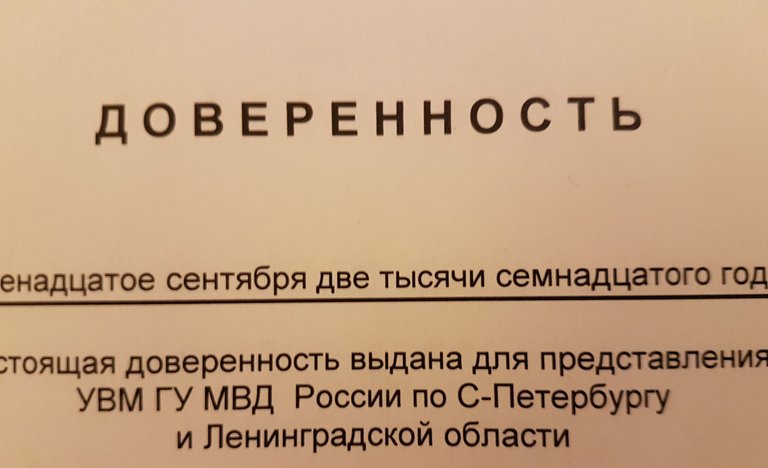
A Power of Attorney (PoA), according to art. 185 of the Russian Civil Code is a written document by which one person (let’s call him: A) can authorize another person (let’s call him: B) to represent him before third persons. In this context a “person” can mean both a natural and a legal person.
It’s also possible nowadays in Russia that the PoA signed with an electronic signature. This however has to be done in the presence of a Notary.
To be able to give another person a PoA, two conditions have to be met: one has to be at least 18 years of age and have the capacity to act (although in some special cases minors of 14 or older can already obtain the capacity to act)
If a kid of 14 till 18 years old does not have the full capacity to act, he can still give a PoA to someone, but only to the amount of his capacity.
In general there are 2 kinds of PoA’s: notarized ones and non-notarized ones. Art. 185.1 par. 1 of the Russian Civil Code states which PoA’s should be notarized. These are PoA that authorize a person to: conclude a deal for which a notary is needed, for state registration of rights or deals and to deal with rights which are kept in state registers.
So, a notarized PoA is not always required. But, unless you are 100% sure of the authenticity of the person you are dealing with, I recommend to only deal with notarized PoA’s. But even then, there might be doubts. Here’s how to deal with them:
Since 1 january 2017 information about notarized PoA’s should be placed on the following website. This website is managed by the Russian chamber of the Notariat. To verify whether a PoA has been revoked you need to enter the following data on it: the date and registration number of the PoA, and the name, surname and patronymic of the notary, who notarized it.
With such a big required data input, chances that your entry doesn’t exactly match the data are relatively high. Indeed, the system does not seem to be running perfectly. Therefore, if one cannot find the data of a PoA on it, this does not necessarily mean it is fake. In such a case one could resort to more old-fashioned ways of verification like contacting the person who gave out the PoA or contacting the notary who notarized it. Neither of those is however obliged to give you an answer and, even if they will answer you, this does not give you the same guarantee that the website is supposed to give you.
Another thing you could do if you have doubts about the PoA is to check whether the notary, who notarized it was allowed to act as a notary at the time the PoA was given out. This can be done at this website , also managed by the Russian Chamber of the Notariat.
I hope the above will be helpful to someone.
I am a practicing lawyer in Saint Petersburg, Russia. You can visit my website if you would like to know more.